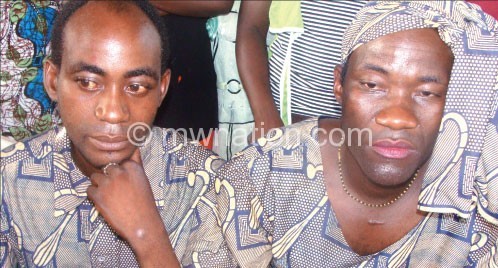Involving sexual minority groups in HIV/Aids fight

When Maria (not real name) arrived at the HIV awareness campaign meeting venue, people murmured and scorned her.
The 24-year-old says she could see people, especially women, pointing fingers and saying: “Amenewa ndiye akufalitsa matenda, akuzatani kuno” (‘What is she doing here? she is the one spreading HIV.’)
“This was embarrassing to me, but I cannot quit sex work. That is how I earn a living,” says the Zomba-based sex worker, who claims to have ventured into sex work business in 2008 after her widowed mother failed to pay her school fees.
Maria admits she is afraid to go for an HIV test, saying she cannot stand the discrimination that would follow if she were to be HIV-positive.
“Already, people judge me. I was once approached to work with a certain non-governmental organisation (NGO) in HIV and Aids prevention interventions, but I could tell that people were judging me, so I quit,” she says.
Executive director of Malawi Network of People Living with HIV (Manet+) Safari Mbewe says there is need to involve minority groups such as sex workers and same sex partners if the country is to win the fight against HIV and Aids.
He notes that it is important to involve minority groups because statistics have shown that HIV prevalence rate is very high in minority groups.
Mbewe observes that despite having various HIV interventions which have helped reduce the prevalence rate, Malawi still registers new infections.
He says Global Fund has advised that prevention efforts should be put where there is evidence that the interventions are working.
“It seems the investments are not yielding optimal results since the other section of high risk group is left out,” he notes.
United Nations Population Fund (UNFPA) programmes manager for HIV/Aids Humphreys Shumba says the country cannot effectively get to zero new infections, deaths and discrimination if other sectors are not involved.
Shumba says discrimination due to the country’s unacceptability of the existence of the minority groups is a major setback in the fight against HIV and Aids.
“People don’t want to accept that there are same sex relationships and sex work business going on,” he says, adding this leads to discrimination.
Centre for the Development of People (Cedep), a local human rights organisation which advocates minority rights, recently issued a press statement where it said there is a prevalent political will for the country and key stakeholders in the HIV and Aids fight to not just share but hold onto the three zeros.
“Yet the country is to come up with an HIV and Aids strategy tailor-made for the sexual minorities,” reads part of the press statement.
Cedep report of 2008 says HIV prevalence rate among Men who have sex with Men (MSM) is at 21 percent, with the figure hovering around 71 percent among sex workers.
“These statistics, thus affirm the fears that it is such populations who, if left unchecked, could torpedo the country’s attainment of the desirable zeros,” says the report.
It adds: “This without doubt impresses upon and all the stakeholders in the HIV and Aids fight to realise that only the formulation of an HIV and Aids policy strategy, specifically meant for sexual minority groups can put the country on a clear path to attaining the three zeros.”
On the other hand, a Manet+ stigma index study report says MSM, women who have Sex with Women (WSM), sex workers; prisoners and persons with disabilities have limited access to HIV treatment, opportunistic and appropriate services for sexual and reproductive health (SRH).
Lesbian, gay, bi-sexual, trans-gender and inter-sexual (LGBT) community is more likely to experience multiple forms of stigma and discrimination hampering their access to equitable care, support and treatment.
Shumba says UNFPA’s initiative to form an alliance for behaviour change, a network of commercial sex workers across the country, is a step towards involving sex workers such as Maria in the fight against HIV.
But how willing are people belonging to sexual minority groups to getting support?
Media officer for Youth Net and Counselling (Yoneco) Charles Banda claims his organisation has been trying to work with sexual minority groupings, but only sex workers are willing to be involved.
“Same sex partners are not willing to come out because they are afraid of being judged and discriminated against by our society,” he says.
Banda adds: “It is important to equip them with more information about the disease. The country is indirectly killing productive citizens if we fail to address this issue.”
Lilongwe-based Mercy Kumwenda, 23, recently came out as a lesbian, saying she took this step to help society to accept the existence of lesbians.






After looking into a few of the blog posts on your web page, I honestly appreciate your way of blogging.
I bookmarked it to my bookmark website list and will be checking back
in the near future. Take a look at my web site too and tell me
how you feel.
“MSM, WSM, sex workers, prisoners & persons with disabilities have limited access to HIV treatment opportunistic & appropriate services for SRH”, are you sure? I disagree. They are all over in our HIV & SRH registers just as the rest of the communities. I feel if we set programs specifically for them, that will segregate them. There is a reason why we are registering new HIV infections other than this.